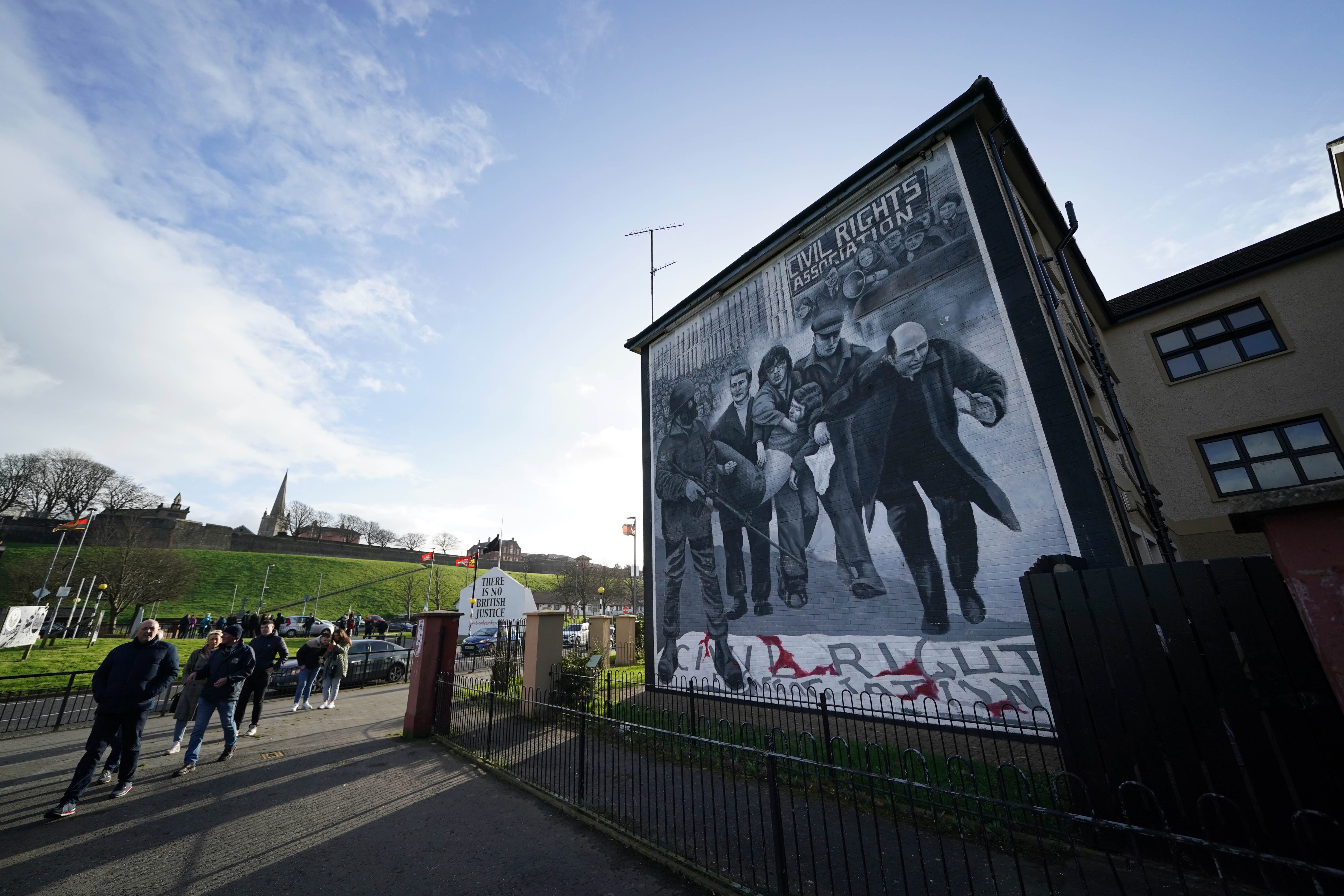Judge quashes decision not to proceed with Soldier F Bloody Sunday prosecution
Bloody Sunday families had challenged a number of decisions not to prosecute taken by the PPS.

Your support helps us to tell the story
From reproductive rights to climate change to Big Tech, The Independent is on the ground when the story is developing. Whether it's investigating the financials of Elon Musk's pro-Trump PAC or producing our latest documentary, 'The A Word', which shines a light on the American women fighting for reproductive rights, we know how important it is to parse out the facts from the messaging.
At such a critical moment in US history, we need reporters on the ground. Your donation allows us to keep sending journalists to speak to both sides of the story.
The Independent is trusted by Americans across the entire political spectrum. And unlike many other quality news outlets, we choose not to lock Americans out of our reporting and analysis with paywalls. We believe quality journalism should be available to everyone, paid for by those who can afford it.
Your support makes all the difference.A decision by the Public Prosecution Service (PPS) to drop murder charges against Soldier F for two deaths on Bloody Sunday in Londonderry in 1972 has been quashed at the High Court.
Delivering the ruling in Belfast, Lady Chief Justice Mrs Siobhan McKeegan said the decision by the PPS not to continue the prosecution “crossed the threshold of irrationality”.
The PPS announced last year it was halting the prosecution of Soldier F for the murders of James Wray and William McKinney amid concerns the case could collapse in light of a separate court ruling on the admissibility of evidence which caused the collapse of another Troubles murder trial involving two military veterans.
The McKinney family then launched a judicial review to challenge the PPS decision.
Delivering the verdict on Wednesday, the Lady Chief Justice said: “This is a rare occasion where we consider the decision should be quashed and reconsidered.”
She added: “We consider that the decision crosses the threshold of irrationality where it simply does not add up, or in other words there is an error of reasoning which robs the decision of logic.
“It follows that the matter should remain with the PPS to reconsider the decision.
“There has already been considerable delay in the criminal process and so it may be that the swiftest and most effective course is actually for the district judge to be asked to rule on the admissibility issue in the first instance.
“It may be that public confidence in the interests of justice are best served by a definitive judicial determination on this issue by a court properly seized of the merits.
“The PPS will now have to decide on the next steps.”
However, judicial reviews taken by a number of other Bloody Sunday families to challenge a PPS decision not to take prosecutions against five other veterans were dismissed by the court.
The case centred on arguments about whether statements made by the soldiers in 1972 would be ruled inadmissible in any criminal trial.
The Lady Chief Justice said she considered there was “no error in law” in these decisions by the PPS.
She added: “(The PPS) has formed a permissible view that there is not a reasonable prospect of the evidence being admitted and in the absence of that evidence there is insufficient other evidence for a reasonable prospect of conviction.”
Bloody Sunday was one of the darkest days in Northern Ireland’s history, when British soldiers shot dead 13 civil rights protestors in the Bogside area of Londonderry.
Another man shot by paratroopers on January 30 1972 died four months later. While many consider him the 14th victim of Bloody Sunday, his death was formally attributed to an inoperable brain tumour.